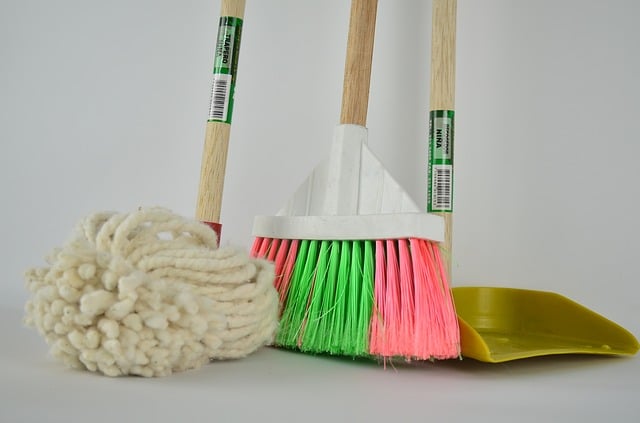 When employees miss work, it is more than just an inconvenience, it is extremely detrimental to your bottom line. “The Centers for Disease Control and Prevention (CDC) reports that productivity losses linked to absenteeism cost employers $225.8 billion annually in the United States, or $1,685 per employee.” For many smaller companies this has the potential to cripple your business. As with most things medical related, preventative maintenance is the most effective solution. Here we take a look at how to keep your small business clean and healthy.
When employees miss work, it is more than just an inconvenience, it is extremely detrimental to your bottom line. “The Centers for Disease Control and Prevention (CDC) reports that productivity losses linked to absenteeism cost employers $225.8 billion annually in the United States, or $1,685 per employee.” For many smaller companies this has the potential to cripple your business. As with most things medical related, preventative maintenance is the most effective solution. Here we take a look at how to keep your small business clean and healthy.
Gym Memberships
The link between health and regular exercise is undeniable. Along with reducing blood pressure and the risks of many diseases, exercising can improve your immune system, allowing your employees to stave off the myriad of bacteria and viruses that present themselves in your small business environment on a daily basis. Partnering with a local gym to offer discounted or free memberships can help to reduce illness related absences.
Disinfectants
Work and high traffic areas should be regularly disinfected. Pay close attention to door knobs and handles. Having spray on hand and distributing disinfecting wipes to workers will help to keep your office and storefront sanitary.
Hand Sanitizer
Set up dedicated stations for hand sanitizer and ensure they are always filled. You can also hand out small bottles to your staff to keep at their work stations.
The CDC offers these tips on when and how to use hand sanitizer:
- Washing hands with soap and water is the best way to reduce the number of microbes on them in most situations. If soap and water are not available, use an alcohol-based hand sanitizer that contains at least 60% alcohol.
- Alcohol-based hand sanitizers can quickly reduce the number of microbes on hands in some situations, but sanitizers do not eliminate all types of germs.
- Hand sanitizers may not be as effective when hands are visibly dirty or greasy.
- Swallowing alcohol-based hand sanitizers can cause alcohol poisoning.
- Hand sanitizers might not remove harmful chemicals, like pesticides and heavy metals, from hands.
Break Room Policy
Break rooms and kitchens need to be cleaned daily. You should have a policy in place that clearly details how employees need to do their part in break room upkeep. Any refrigerators should be cleaned out weekly and sanitized. Cooking surfaces and microwaves should be kept clean and be clear of any food matter.
Regular Deep Cleaning
Hire a company to do a thorough cleaning of your facilities once a month. This can greatly improve the cleanliness and appearance of your business. It is well worth the cost to hire a professional with access to all of the necessary equipment to deep clean your work environment. Having a regular cleaning person on hand for daily maintenance is also a must have for small businesses.
Personal Hygiene Policy
As this can be a sensitive subject and a tough one to approach you should have a written policy that will inform employees and take the burden off of management. Make this available at the time of hire to every employee.
Properly Equipped Restrooms
Keeping your restrooms facilities clean and well stocked is essential in maintaining a healthy environment. Make sure all soaps, disinfectants and paper products are filled daily.
Signage
Post signs that provide information on the importance of a clean workplace and encourage employees to follow policies. Depending on your business you may be required to have certain policies and laws clearly posted in specific areas.
Encourage Sick Days
While this may go against traditional thinking it is extremely important that contagious workers stay home. Providing a little flexibility without being taken advantage of is not only good for the health of your work environment, it also improves employee morale.
Click Below For More Ways To Invest In Your Small Business





